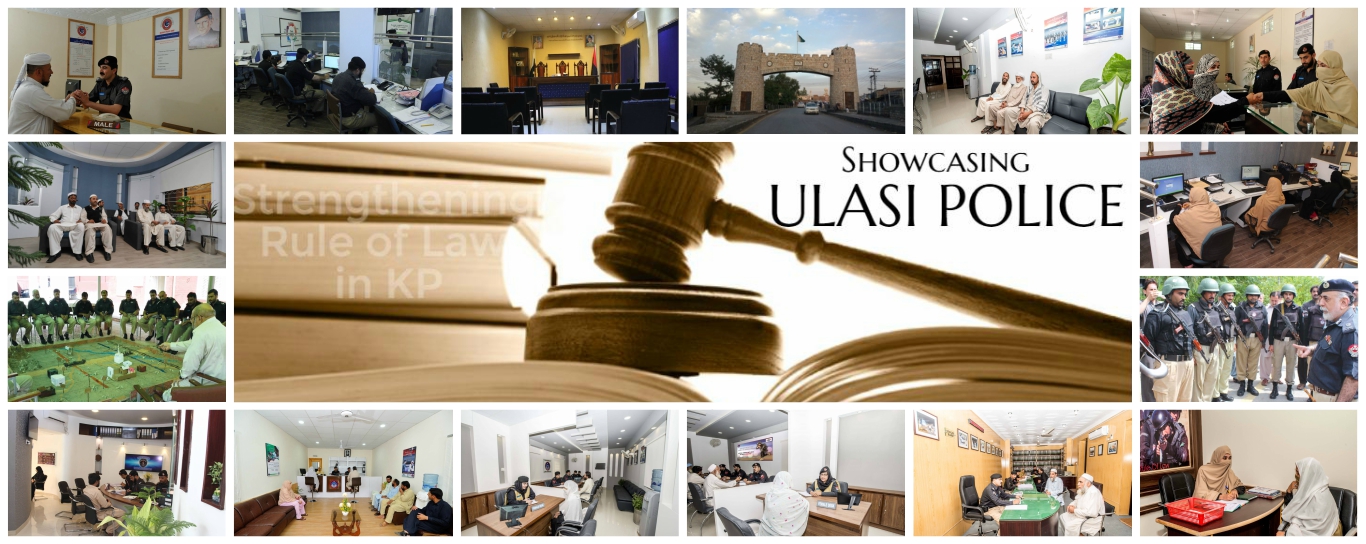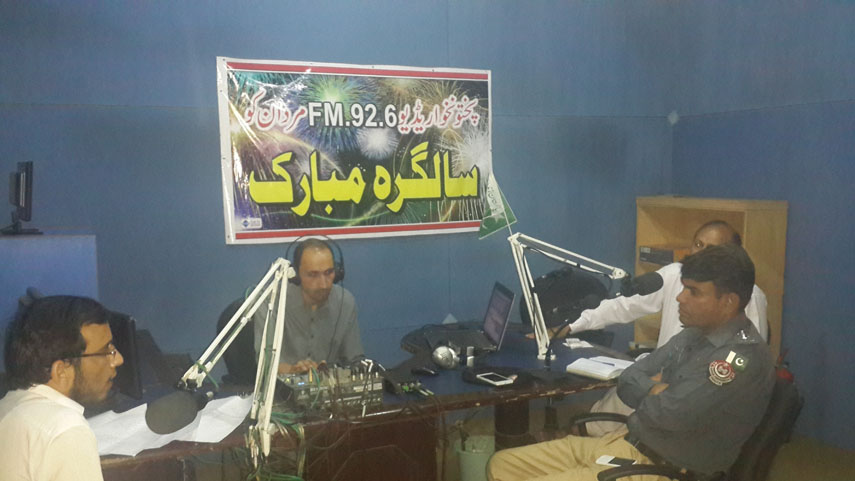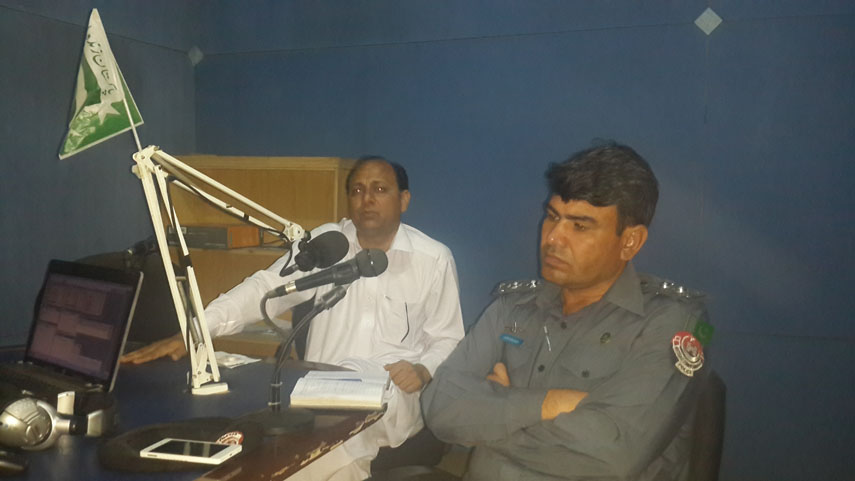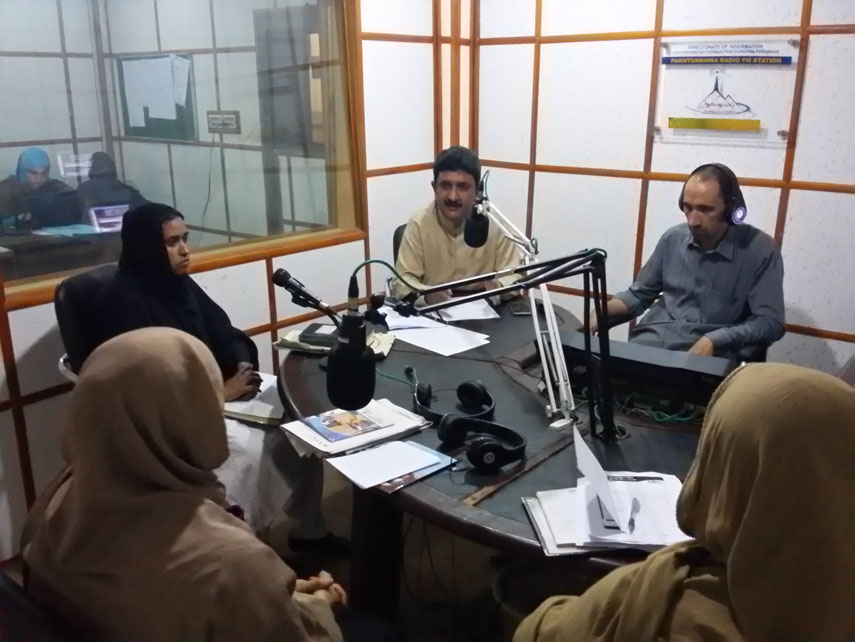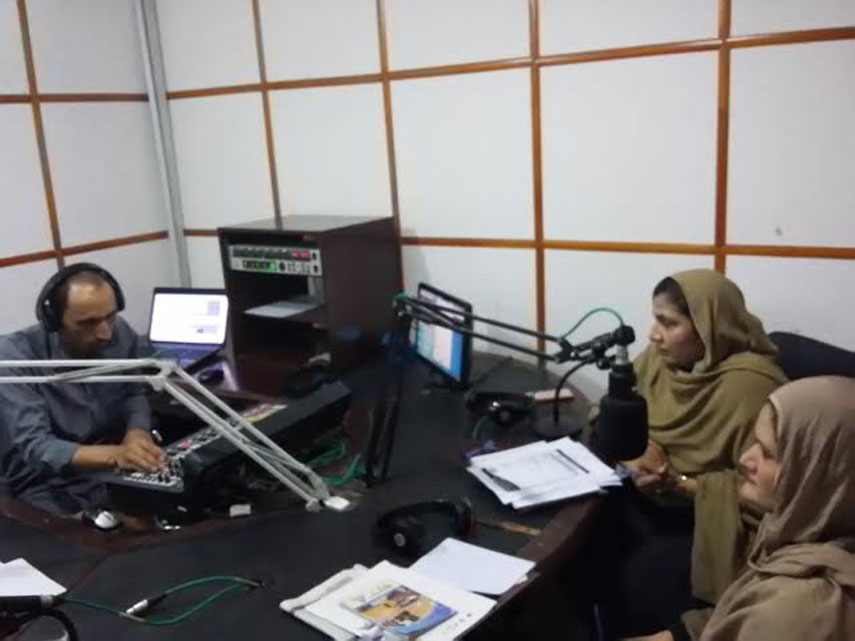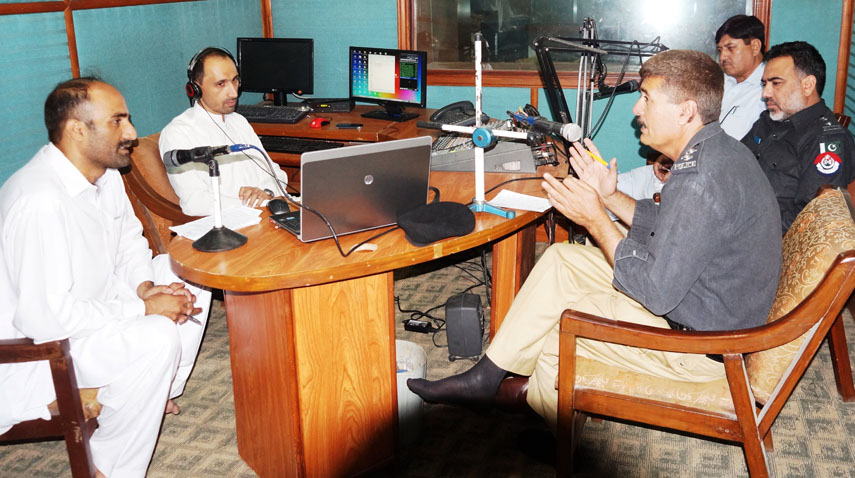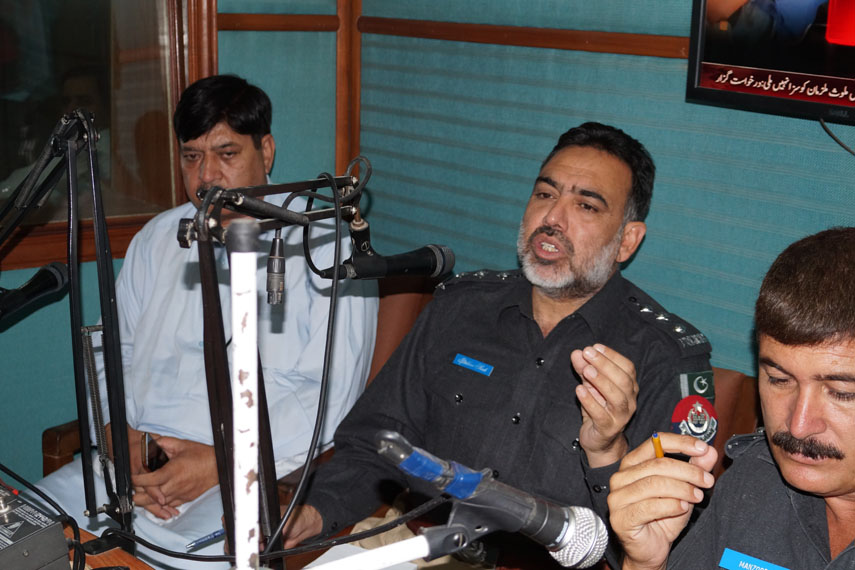The Center for Research and Security Studies (CRSS) has broadcast three more episodes of its new flagship radio program “Ulasi Police” in the districts of Mardan, Peshawar, and Charsadda on June 14, 15, and 16 respectively.
“Ulasi Police” is an awareness and advocacy campaign undertaken by the Center – as part of USAID Small Grants and Ambassadors’ Fund Program – to strengthen the rule of law in KP province by promoting and disseminating the significant police reforms aimed at incorporating local communities’ policing needs and international human rights standards. The endeavor aims to ameliorate the trust deficit between the public and police, and help KP police become an accountable and community-focused police force.
Role of Model Police Stations:
Ulasi Police aired from Pakhtunkhwa Radio, FM-92.6 Mardan, on June 14, 2016 focused on the role and importance of model police stations. The discussion points included reforms in KP police, the aims and objectives of model police stations, difference between a normal police station and model police station, process converting a normal police station into model police station, its role in crime reduction, police attitude and behaviors towards public, complaints registration mechanism and the progress of model police stations.
Mr. Arshad Ali, Sub-Inspector/ Principal Staff Officer Mardan, said: “Model Police Station is an initiative of IGP, KP to equip all police stations in the province with modern facilities to better facilitate the public and reduce burden on police. Until now, we have four model police stations in the district Mardan, and hopefully we will convert all police stations into model police stations sooner than later.”
The other guest participant of this radio show was Mr. Saeed Ahmad, lawyer, district courts, Mardan.
Role and Importance of Women Policing:
Ulasi Police aired from Pakhtunkhwa radio FM-92.2 Peshawar on June 15, 2016 focused on the role and significance of women policing in Khyber Pakhtunkhwa Province.
The primary points of discussion were KP police reforms about women policing, need and importance, ratio of women currently employed in police, female desks/ counters in police stations, role of women police in countering gender based violence, and recruitment procedure of women in police.
Ms. Asmat Arra, Deputy Superintendent of Police (DSP) Traffic, Peshawar, said: “If we look at the figures, only 130 females are in Peshawar police. This number must be increased. We have announced recruitment notice, but females are reluctant to join the force. So far, we have 2 driving schools in Peshawar and more than 1000 females have got their driving license.”
The other guest participants of this radio show were Ms. Rizwana Hameed, Station House Officer (SHO) Peshawar, and Ms. Amna Pervez, lawyer, Peshawar.
Police Reforms for Traffic Management:
Ulasi Police aired on June 16, 2016 from Dilbar Radio, FM-93 Charsadda discussed police reforms related to the traffic police and for establishing traffic management system in Charsadda.
The key discussion points included reforms in KP police, traffic warden initiative, role of new wardens in the traffic management of Charsadda, difference between traffic police and traffic wardens, training and capacity building procedure, usage of information technology tools for vehicle tracking and traffic control, public dealing of traffic wardens, reward system for better performance in traffic police, and benefits of these reforms for a common individual.
Mr. Iftikhar Shah, Deputy Superintendent Police (DSP) Headquarters Charsadda, said: “I can proudly say that no one can prove that a traffic police has taken any bribe in last few years. We have fully equipped our personnel with the necessary wherewithal to perform better and effectively manage the traffic system in the district.”
The other guest participants of this radio show were Mr. Manzoor Khan, Sub-Inspector/Traffic Police In-charge, Charsadda, and Mr. Hakim Ullah Khan, Transporter/Businessmen.
All three episodes included field based research stories, one each for the Ulasi Police of Mardan, Peshawar, and Charsadda. The reports shared the views of general public, shopkeepers, police officials, lawyers, KP police beneficiaries on the aforementioned programs themes. Several live calls from the public were also included in the shows.

